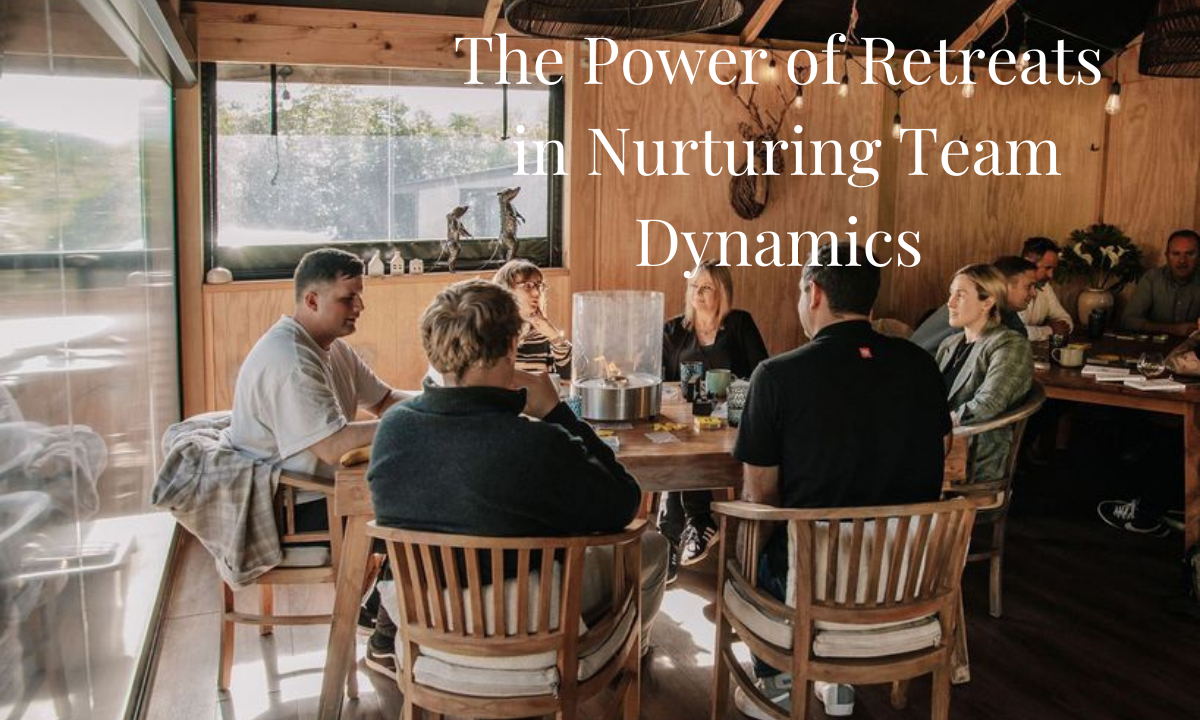
Let me transport you: having spent all day with our special force instructors, learning how to make an emergency shelter out of ‘bush treasure’, we observe 12 senior managers from a national construction company, working quietly and (sometimes) effectively to build their shelters for the evening.
Rain wasn’t forecast, but we are snuggled in a valley in the lower reaches of the Tararua Mountain Ranges, and there’s always a 65% chance of evening ‘mountain mist’. Not rain, just very heaving dew – you can probably read my sarcasm dripping like the leaves…
COMFORTABLE BEING UNCOMFORTABLE | NURTURE | RESILIENCE | TEAM
These individuals were so completely outside of their comfort zone, with two members facing physical limitations. But after two days into our four-day experiential high performance and resilience leadership programme, there is a culture and attitude shift.
LEADERSHIP | HIGH PERFORMANCE | PERFORMING UNDER PRESSURE | EMPATHY
Primarily, the first day is spent ‘figuring out’ what equipment the teams of six are going to need, facing 72 hours of complete independence. Critical thinking and project planning abounds, with certain members expressing talents for catching small furry things with their bare hands, someone’s personal loathing of spiders, and map and compass skills fabricated. This is closely followed by negotiation – or a lack thereof. Food is bargained, sleeping plans discussed, the decisions around who is carrying what – and those tense questions around do wereally need that butterfly net, climbing harness, and pavlova?
CRITICAL THINKING | PLANNING | DELEGATION | NEGOTIATION | STRENGTHS
When you find yourself in these kinds of situations, people respond in either one of two ways: loudly with self-valued opinion and over-confidence (the bullshitters) or withdrawing into a shell with no expression of opinion, moonlighting as members of the team (the meerkats).
PERSONALITY TYPE | COLLABORATION | FACILITATION
Faced with strong inquiry from the facilitation team around what they had chosen and why, poor or illogical decisions generally remain unrevoked when tested. Those decisions made by the ‘loud’ people survive as ‘authoritative’. Why? In teams, it is often the loudest person who is heard the most. But this doesn’t mean they’re the smartest.
PRESENTATION SKILLS | AGILITY | EGO | KNOWER VS. LEARNER
If I use Tuckman’s forming, storming, norming, performing model, the 24 hours that spearheads the experience is about self, position, and theory. Management vs. Leadership. Process without buy-in. Low empathy, high self-consideration.
Deeply embroiled in storming, you can identify the Alphas, with little or no experience of 'leading' (inspiring) under duress; vs. directing or managing.
INSPIRING | ADAPTIVE | LISTENING | SELF-AWARENESS
48 hours in, and there is a subtle shift that ignites epiphanies. Campfire blazing, the smell of smoke, Ruru yawping around us, and the ever-present burble of the stream: it is now that individuals start to meld into a ‘tribe’.
Sitting around the fire at the end of the day, people debrief – and it’s like trying to get people to stand buck naked and dance: an intimate, vulnerable and entirely uncomfortable position.
…That said, I am certain that some people would have tossed their clothes with gay-abandon, rather than utter ‘this made me feel…’ or ‘thank you and…’
Something which was seen as even more horrifying, was looking a teammate in the eyes, and verbalising feelings towards them. It was astounding witnessing such discomfort amidst a team who had worked together for up to 17 years!
VULNERABILITY | PRESENT | GRATITUDE | CARING | DEEP LEARNING
Four days later, having slept rough; guarded fires around the clock; made and carried stretchers; eaten, slept, sweated, cut, chopped, discussed, listened, and reflected deeply, I was so privileged as a facilitator to witness ‘high performance’ at its absolute, sensational best.
I saw rhythm and comfort in ‘being’. Perceptive use and knowledge of other tribe members’ strengths. Empathy and forgiveness of physical limitations - without judgement. Increased non-verbal awareness of others personal needs (periphery behaviours). Best of all, this knowledge was embedded through ‘feeling’ and 'experiencing'.
These lessons were learned through debriefing, reapplication of the lesson, and ‘cognitive recognition’ of the tangibly better results for both the ‘tribe’ and individuals when applied. If you’re interested, you can learn more about Kolb’s Model of Experiential Learning below.

Not only did the group learn copious amounts about themselves and their teammates, but they created an extraordinary memory to boot!
TRANSFERABLE SKILLS | INCREASED EMPATHY | ABILITY TO INSPIRE | AGILITY | SUSTAINED TRANSFORMATIVE CHANGE
According to Forbes, 336 billion US dollars is spent annually on classroom-based leadership training, with a 10% retention of data after 6 days. This return on investment (ROI) is reduced to 3-4% after 30 days. Data and learning retention are significantly increased when knowledge is either consciously reviewed time and time again (rote learning), or by experiencing or feeling the result of the lesson, through ‘creating a memory'.
RETAIN YOUR KNOWLEDGE AND CREATE MEMORIES THROUGH LEARNING IN THE BUSH WITH US
Book now and allow our team to actively increase your organisation’s fiscal and personal ROI, with an adventure outside of the classroom.
Through our high performance programme, Kolb's Experiential Learning Model is utilised, including the below two-part matrix.
Kolb’s Learning Style Inventory
- Diverging: Watchers and information gatherers. Able to see a problem from different viewpoints. Use information to solve problems.
- Converging: Prefer technical tasks to interpersonal relations. Convergers find practical uses for abstract theories and ideas.
- Assimilating: Understanding and organizing a wide range of information is the assimilator’s strong point.
- Accommodating: Hands-on learners, yet intuitive. New challenges and experiences are sought. Accommodators enjoy completing plans.
Kolb’s Four Stages of Learning
- Concrete Experience – A new experience or the mental replay of an experience which already occurred can be considered a concrete experience. Kolb thought learning required involvement. Just reading or watching was not enough. Becoming engaged with a task helps learners process experience. A concrete experience, he thought, set a cycle of learning in motion.
- Reflective Observation – Following a concrete experience, a learner must step back to reflect. Questions may be posed, the experience discussed with others. This stage requires communication, which allows learners to identify disharmonies between the experience and understanding of what actually happened as its result.
- Abstract Conceptualization – This step makes sense of the events. Conclusions are drawn through reflection upon knowledge gained earlier. Familiar ideas may be used as a comparison. Possibilities may be discussed with colleagues. The transition from reflective observation to abstract conceptualization starts when the learner begins to classify concepts and form conclusions. Interpretations must be made between the experience and current understanding of the process or idea. The concept doesn’t need to be new. Learning can involve modification of conclusions based on previously existing ideas.
- Active Experimentation – This stage puts it all together. After having or remembering an experience, comparing it to current levels of understanding, new ideas are formed and applied to the situation. Conclusions are made concerning the effectiveness of the newly formed concepts. This is how true learning takes place.



